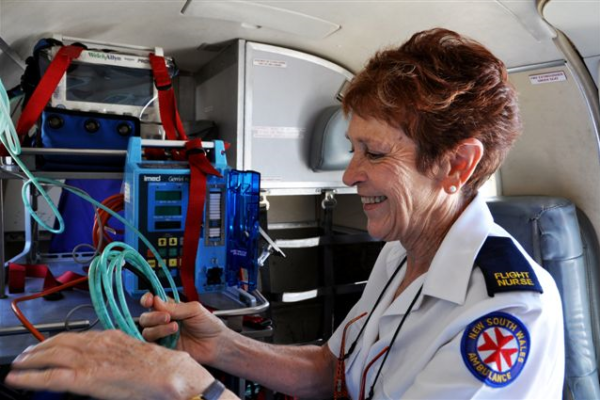
Meet the oldest Air Ambulance Nurse in Australia
Maureen Roberts has many career highlights to share from her 32 years as Australia’s longest serving air ambulance nurse.
In a recent interview on Macquarie Media, Maureen told the story of the pilot of her aircraft passing out at the controls and how she calmly popped his oxygen mask on and brought him around enough to land the plane. And you thought your job had challenges!
Maureen began her career in the Riverina and became interested in the Air Ambulance are speaking to a fellow nurse from the service. She started her career in Albury but is now based at Mascot, near Sydney.
Another memorable moment of her career involved a premature baby in the skies over the Hunter Valley in NSW. The Air Ambulance needed to land but a FA18 Hornet on “critical fuel” took precedence. Maureen remembers saying to the Air Ambulance pilot “the fighter pilot can eject if he needs to but we can’t, we need to land”!
One of the wonderful things about her job, Maureen told us, is that every day is a different experience depending on the patients you're transporting.
“Sometimes you're taking people home to die and they know they're going to die and they have the most amazing conversations with you."




